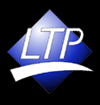Home | About the
Space Science Team | Before | During
| After | Student
Presentations | Visual Tour
Publications | More
Links and Resources | Site Map
Appendix C
Appendix A | Appendix B | Appendix C | Appendix D
My impressions of the Japan 2001 Science, Creativity and the Young Mind Workshop Space Science Team
by
Carsten Riedel
criedel@geophysik.uni-kiel.deThe workshop developed very well during its short period of existence. Although their understanding of science was already on a high level, the students could not follow our train of thought at a high speed in the beginning. For the Japanese students there was also a language barrier, which had to be broken, and which was best depicted in our first videoconferencing session when Kako, our Japanese facilitator, had to translate word for word into Japanese. Since Kako was not into science as much as the students, I had to translate everything from Joe Kolecki's descriptions into more generally understandable English, which was then conveyed to the Japanese students by Kako. This language barrier from scientist to nonscientist and from English to Japanese is clearly a barrier to scientific discussions because it prevents the formation of an open discussion. In circumstances like these, there is rather one best way of information transport and that is from the teacher to the student directly.
To break this vicious circle, we gave the students the same information over and over again, until they could explain things in their own words. We showed them many pictures from the Internet to depict the situations on Mars and Earth, which clearly enabled us, as well, to think through the situation. After all students had something to talk about, we encouraged the students, of their own freewill, to prepare a question for the next videoconferencing session. So the second conference was more about asking. The students clearly were fascinated by the way NASA presented their theories. And though I sometimes thought, "Now this is getting too simplistic...," it appeared to be a good way to present the ideas. The spirit alone, that there was somebody who is in contact with "higher forces," i.e. people who built the Space Shuttle etc., drove the students to understand what was behind all of it.
In the last two or even three days, every one of the group took something home from the workshop. While some would only scratch the surface of what we or Joe presented, others were developing the ideas further and further, ranging from those who developed hypothesis after hypothesis, to those who followed a single line of inquiry to the bitter end. While I suspect the last one to be more scientific, the intuitive capacity delivered by the other approach was as important, because it could be developed further and further through their social evenings and nights. Taking the experiences of these evenings and nights into the workshop and getting into contact with Japanese culture was clearly a decisive motivation factor, especially for the Japanese students who were feeling more and more accepted.
Space Science offers many different perspectives. In the field of space physics or geophysics we spanned a much bigger range during the five days than I expected or was prepared for. Some of the ideas they wanted to follow had to be taken out of up-to-date scientific references that were unknown to us and told us, as supervisors, something about Mars or Earth. What all of the participants clearly experienced during the discussion with each other is the fact that no idea is understood before you can explain it to somebody else in your own words. And that is a task not easy to achieve for many people. Since people in England keep talking about basic skills, I think the students clearly advanced in their presentation skills day by day, which became obvious when listening to their final talk. Each testing phase was not as good, straightforward, and logical as the final talk, which was presented by a mixed team of Japanese and English students in a very short time. Congratulations!
Web Related:
David.Mazza@grc.nasa.gov
Technology Related: Joseph.C.Kolecki@grc.nasa.gov
Responsible NASA Official:
Theresa M. Scott


